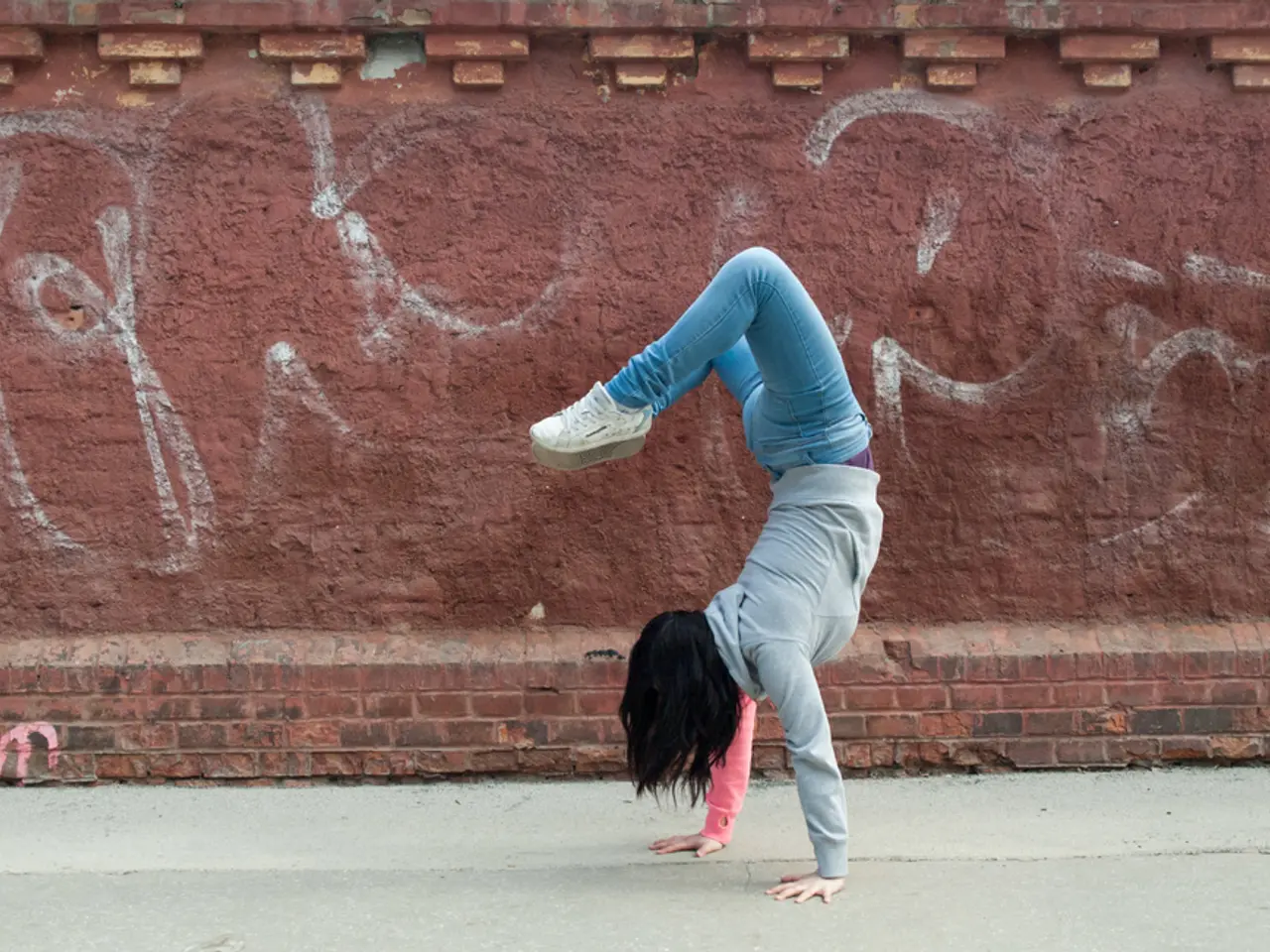Routines to Alleviate Lower Back Discomfort
In the quest for effective back pain management, a series of simple exercises and gentle movement therapies can make a significant difference. These exercises, suitable for a living room or with a regular chair, can help alleviate back pain and prevent future episodes.
Preliminary Movements
Proper preparation is key. Effective back pain management begins with preliminary movements like the cat-cow sequence, which teaches spinal segmentation, the ability to move the spine one vertebra at a time rather than in rigid blocks, essential for normal spinal function.
Seated Trunk Rotations
The seated trunk rotation exercise is a simple yet effective move that increases blood flow to working muscles, lubricates joints, and establishes the mind-muscle connection needed for optimal results.
Knee Rolls
Knee rolls address rotational stiffness in the lower back while providing a gentle stretch to the hip and trunk muscles. This exercise is particularly beneficial for those dealing with lower back pain.
Standing Trunk Rotations
The standing trunk rotation exercise offers an added challenge by testing balance and core stability. It provides the same mobility benefits as the seated version, making it a great option for those seeking a more intense workout.
High Knees
High knees activate the deep core muscles, improve hip mobility, and challenge the coordination between the upper and lower body. This exercise is a great addition to any back pain management routine.
Knee Hugs
Knee hugs provide a gentle stretch to the lower back muscles while helping to reset muscle tension after the other exercises and improving hip flexibility.
Upward Facing Dog Stretch
The upward facing dog stretch specifically targets tightness in the front of the body that contributes to back pain while strengthening the back muscles.
Standing Side Bends
Standing side bends address lateral tightness created by modern life. This exercise is a simple yet effective way to counteract the effects of poor posture and repetitive daily activities.
Superman Exercise
The superman exercise targets the entire back side of the body, including the muscles that run along the spine, glutes, and posterior core muscles. This exercise can be modified for those finding straight arms challenging, making it accessible for all.
Chronic Pain and Deconditioning
Chronic pain creates a vicious cycle where reduced activity leads to deconditioning, which increases injury risk and perpetuates the pain cycle. Incorporating these exercises into your daily routine can help break this cycle.
The Long-Term Benefits
The long-term benefits of these exercises extend beyond pain relief, including improved cardiovascular health, increased confidence, and prevention of future episodes of back pain.
Complementary Therapies
In addition to these exercises, therapies like yoga, Tai Chi, Qigong, Feldenkrais, and progressive muscle relaxation can improve body awareness, movement patterns, and coordination. Specific stretching exercises targeting the hamstrings and back extensors are also beneficial.
A Progressive Approach
The progressive approach to building a personal back pain management system involves starting with just the cat-cow and good mornings exercises, performing each 10 times once or twice per week, and gradually adding new exercises as the current ones become comfortable and automatic.
The Impact on Physical Activity
People with untreated back pain are 40% less likely to meet recommended physical activity guidelines. Incorporating these exercises into your daily routine can help improve your overall physical health and wellbeing.
People who incorporate these movements into their daily routine report not just pain relief, but improved energy levels, better sleep quality, and increased confidence in their physical abilities. The approach focuses on movement quality over quantity, offering a sustainable solution to managing back pain.
Read also:
- Top-Notch Home and Expert Age Spot Remedies
- 'Starting today, registration for the Ayushman Bharat Scheme is available'; announced Delhi's Health Minister, Pankaj Kumar Singh
- Apparition's Significance and its Delivered Messages - as discussed by Sensenmann
- Explored the Popular Health Assessment with a Queue of 100,000 Aspiring Participants - Here's My Unadulterated Opinion






